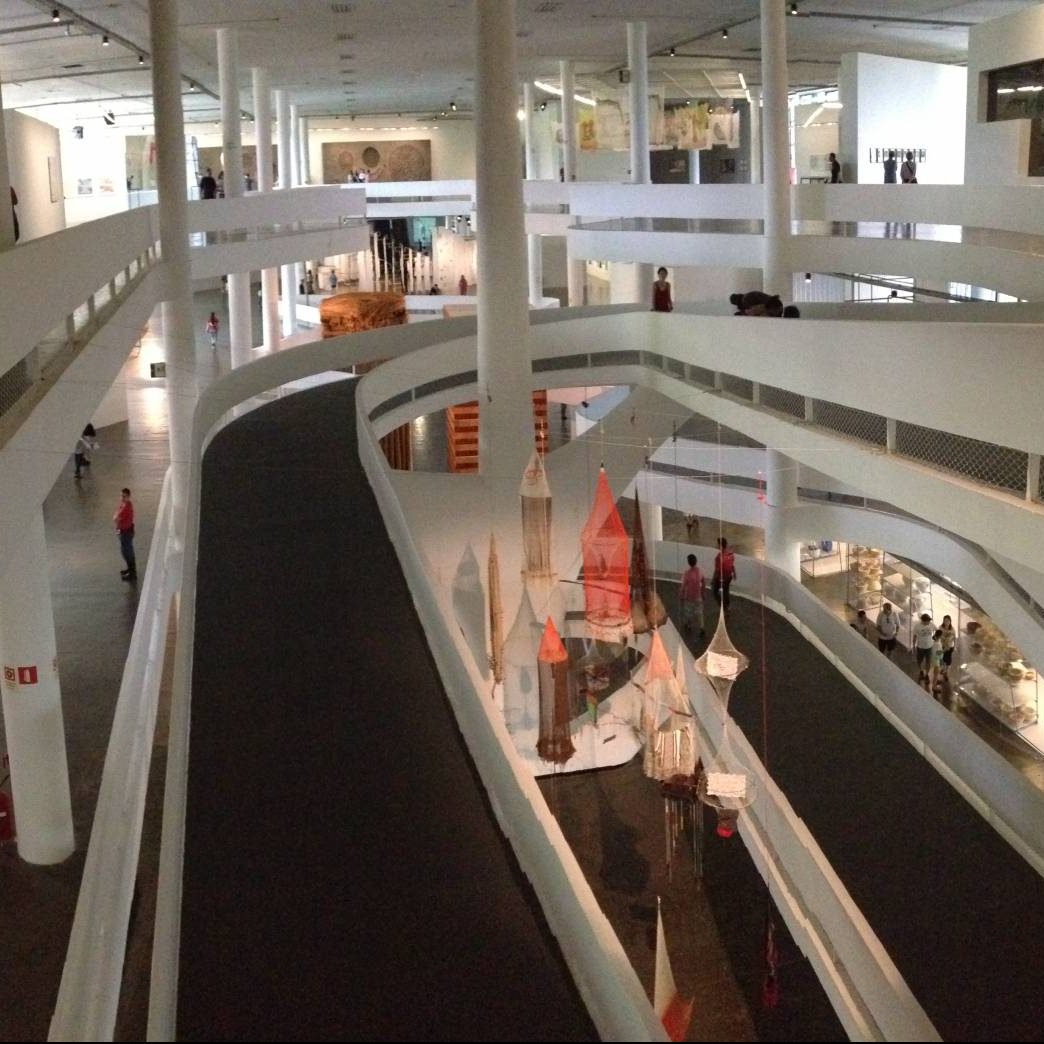I spent my fall break last week in São Paulo, Brazil, visiting a variety of art museums and community spaces with a focus on the 32nd São Paulo Bienal, themed Incerteza Viva—live uncertainty. The trip was part of my art history seminar, Contemporary Art: The World Picture. University-sponsored travel, whether through classes, workshops, or independent work, has been the highlight of my Princeton experience, and my time in Brazil was no exception.

Before our fall break trip, we discussed in class how mega-exhibitions of art construct visions of globalization and negotiate relationships in the expanding art market. In many countries, the proliferation of global art exhibitions tracks in the end of colonization, the opening of borders, and modernization via technological and social innovation. We put these ideas to work in Brazil, speaking with artists with work displayed at the Bienal, local artists managing community spaces, and even two members of the curatorial team. From people involved in the art world, we learned how curation is an inherently ethical and political activity. Perhaps the most valuable learning moment occurred outside the context of the art world, when we visited an occupation where community members were attempting to win ownership of an abandoned building to address the city’s housing shortage. Here, I saw the interplay of São Paulo’s shortage of affordable housing, mayoral politics, and Brazil’s broader political crisis in action.
Perhaps most importantly, I created invaluable personal relationships by spending a concentrated seven days in the company of my professor, a mentoring graduate student, and twelve classmates (now, friends.) My classmates include two aspiring curators, a molecular biologist, a pharmaceutical entrepreneur, and a future hedge fund employee. When we weren’t learning about art, we learned about each other, sharing our love for music, dance, and yoga. Class discussions and my research to come will be enriched by the friendships I have created in the class. I feel more comfortable sharing my ideas with my classmates inside and outside of class. After Tuesday’s tragic election, I had valuable conversations with some of them about the new state of the world, drawing from our experiences seeing Brazilians reeling after the institution of Michel Temer as president.
Course-related travel, whether through a semester course, Princeton workshop, or global seminar, can give you the chance to connect your research to concrete people and places. Spending extended amounts of time with classmates and professors add personal depth to classroom topics. Interactions with local community members have the potential to import urgent relevancy to your study. Keep an eye out for traveling classes in next semester’s course catalog, and reference the Office of International Programs to learn about special summer classes and workshops abroad!
—Vidushi Sharma, Humanities Correspondent

